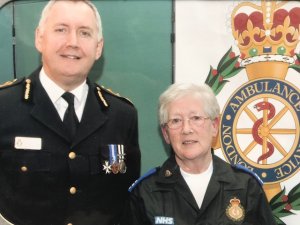Bowel Ischaemia Fatality – Client Story

Contact
Table of Contents
Jodi Newton, a Partner in the Clinical Negligence Department at Osbornes Law, has recently settled a long running fatal medical negligence case against an NHS Trust, following their failure to diagnose and treat our client’s partner’s ischaemic bowel, which tragically resulted in his death at aged 47.
What is bowel ischaemia?
Bowel ischaemia, causes a reduction in blood flow to the intestines. This decreased blood flow can cause damage to the intestinal tissue due to a lack of oxygen and nutrients. In serious cases, symptoms include abdominal pain, nausea, vomiting, and an urgent need to have a bowel movement. If not treated promptly, bowel ischaemia can lead to serious complications, including tissue death, perforation, sepsis, and even death. Treatment typically focuses on restoring blood flow to the affected area, which can involve medication or surgery depending on the underlying cause and severity of the condition.
Background
From March 2019 Mr R began to deteriorate with serious gastrointestinal pains and nausea. He was losing weight very quickly. The tests the GP sent for him came back generally normal other than a finding of oesophageal candidiasis, for which he was prescribed antibiotics. Having been discharged after such extensive testing, our client advises us that Mr R simply learnt to cope with his debilitating condition.
These problems escalated and on 3 October 2019, Mr R was taken by ambulance to hospital with severe abdominal pains, diarrhoea and vomiting, but was discharged the next morning.
Contact was made with the NHS 111 service on 4 October 2019 reporting symptoms that had been ongoing for 72 hours. Mr R hadn’t eaten for three or four days. He was noted to be conscious with confusion and was dizzy with palpitations. He had suffered rapid weight loss and abdominal pain. He was advised to attended the Emergency Department and went there straight away. The vomiting had become particularly serious. He estimated that he had vomited over 100 times over the course of the day. He reported high levels of pain. He was provided with intravenous fluids, anti sickness medication, and discharged a few hours later in the early hours of 5 October 2019, with a diagnosis of gastroenteritis.
Our client’s partner died at home during the evening of 8 October 2019. She came home to find he had passed away.
An inquest was opened at which the Coroner was heavily critical of Mr R’s treatment by the hospital and issued a Prevention of Future Deaths report. The primary cause of death was found to be acute bowel ischaemia.
Claim for compensation
Our client instructed Jodi Newton of Osbornes Law to investigate a claim for clinical negligence.
Expert evidence was obtained from experts in surgery, gastroenterology, emergency medicine, and cardiology. The case raised complex issues in relation to breach of duty and causation.
Our emergency medicine expert considered that the failure to admit Mr R on his return to hospital was a breach of duty. There were several aspects of the history and reported symptoms that should have warranted further consideration.
- Mr R/his fiancé had reported confusion/delirious documented in the NHS 111 records for the 4 October. Had this history been obtained on 5 October then this would have been a clear indication to admit him to hospital for further investigation and treatment.
- The other information that was important to our expert and suggestive that his illness was more than simple gastrointestinal upset, is the history that he had vomited over a 100 times on 4 October which would suggest that alternative diagnoses such as bowel obstruction should have been considered.
- Finally, he reported a pain score of 7 which is considered to be high.
In the presence of such a history, it would be essential to observe the patient for a period of time prior to discharge to ensure that: (a) the vomiting had stopped and (b) they could tolerate a normal fluid intake without vomiting so that there would be a reasonable expectation that the patient would be able to re-hydrate at home. Given the multiple episodes of vomiting that were reported from the day before, the high scoring for abdominal pain, then not vomiting up some sips of water over a two hour period would not be an adequate challenge to determine whether his condition had settled and was truly a self-limiting episode of gastroenteritis.
Experts in surgery and gastroenterology
Our experts in surgery and gastroenterology considered causation, that being what would have happened if he had been admitted to hospital for further investigation. Their evidence was that:
- He would have been maintained as an inpatient and undergone serial clinical and laboratory assessment.
- Given that the records indicate that his symptoms were ongoing then the expectation is that a deterioration would again have been observed. During this time, he would be resuscitated and placed on broad-spectrum intravenous antibiotics with regular observation.
- The diagnostic possibility of ischaemia would have been investigated.
- He ought to have been sent for a CT scan soon after admission as a reasonable emergency clinician would have suspected small bowel obstruction as a possibility, given the symptoms.
- A CT scan or x-ray on 5 October, would have identified abnormal results, mandating referral to the surgeons.
- He would have been referred to the surgeons and a dedicated CT angiogram would then be required. This is likely to have taken place by 6 – 7 October at the very latest. The purpose of a CT angiogram is to look at the vascular of the small and large bowel, and this would have shown hypoperfusion.
- To assess the integrity of the bowel, the surgeons would have carried out a laparoscopy on the same day as the radiology which would have revealed ischemia to the distal small bowel similar to the damage found in the Post Mortem report. It would be presumed to be irreversible ischaemia, mechanical perforation and peritonitis. The laparoscopy would be converted to a laparotomy. The surgeons would have proceeded to a subtotal colectomy with formation of an end ileostomy. He would have subsequently undergone an ileorectal anastomosis to restore intestinal continuity.
Our experts were satisfied that on a balance of probabilities, given the position as stated above on the investigation and treatment pathway upon admission on 5 October 2019, Mr R would have survived.
A Letter of Claim was sent to the NHS Trust on 12 July 2022. On 9 November 2022, they responded, denying liability in full.
In light of the Defendant’s denial of liability, Counsel, Matthew Brunning of No 5 Chambers, was instructed to draft court proceedings.
£300,000 in compensation
However, the Defendant’s solicitors, despite the denial of liability, invited the Claimant to mediate. The mediation was successful with compensation negotiated of just under £300,000.
Jodi Newton, who acted for our client in this case, commented “this was a highly complex case in respect of causation in particular and required careful analysis and multiple meetings with the medical experts to identify the issues in the case, hypothesise on what should have happened, and the scope of the negligence. Our experts were very impressive and worked so strongly together as a team with our barrister and I, until we were clear on the allegations and a consensus that Mr R would have survived, but for the negligence. We were saddened when the Defendant initially denied liability but they did at least adopt a more sensible position, once court proceedings were positioned, by inviting us to mediate. I was privileged to represent such a courageous client who stood up for what she believed in and achieved justice in the name of the partner she lost. She remains devastated by her loss however and by the lack of any formal apology by the Trust ”.
How Osbornes Law can help
If you’ve experienced complications after surgery that you believe were avoidable, you may be entitled to compensation. Surgical errors, delays in diagnosis, and poor post-operative care can have life-altering consequences. At Osbornes Law, our medical negligence solicitors are here to advise, and help you move forward.
Contact us
If you or a loved one has suffered due to negligent medical care, speak to one of our experienced team members in confidence. We offer:
- Free initial consultations
- No win, no fee representation available
- Expert medical negligence solicitors recognised by leading legal directories
Share this article
“Small but very effective and experienced team so every client benefits from the personal touch but also highly skilled litigation know-how. Capability of the team means they can handle all aspects of very complex cases as well as straightforward matters.”
“Osbornes Law is an established firm which handles a breadth of complex and high-value clinical negligence matters.”
Contact our Medical Negligence team today
Call us 020 7485 8811
Email us Send us an email and we’ll get back to you
Fatal Medical Negligence Claims VIEW ALL
- 29.4.2025
Five-Figure Settlement in Fatal Medical Negligence Case
Osbornes Law secures a five-figure compensation following a fatal medical negligence claim Osbornes acted for our client, E, who brought...
Read more - 30.4.2024
Settlement In Neonatal Death Case
Settlement in fatal medical negligence case against King’s College Hospital Nick Leahy, Associate in our Clinical Negligence department, recently...
Read more - 8.4.2024
Epilepsy Negligence Compensation Claim
Nicholas Leahy, an Associate in the Clinical Negligence team at Osbornes Law, has recently settled a long-running fatal medical negligence...
Read more - 13.1.2023
Delayed diagnosis of appendiceal cancer
The medical negligence team at Osbornes Law has recently settled a case involving a patient who passed away following a...
Read more - 31.1.2022
Recent fatal medical negligence cases
Osbornes Law specialises in helping families who have suffered a fatality due to inadequate medical care. Our specialist team has...
Read more - 20.9.2021
Osbornes Law Represents Family in Fatal Medical Negligence...
Negligent Hospital Care Leads to Tragic Death Osbornes Law is representing the family of a former NHS employee who suffered...
Read more - 8.7.2021
Failure to prescribe anti-coagulant medication proves fatal
Executor of the Estate of DS and another v James Paget University Hospitals NHS Foundation Trust The Clinical Negligence team...
Read more - 18.5.2021
Fatality of child caused by incorrect diagnosis
KRB was born in 2000 and was a patient at Whipp’s Cross Hospital. In the Autumn of 2014 he was feeling...
Read more - 13.11.2019
Fatal Claim against West London NHS Trust
Claim Against West London NHS Trust Case Overview I recently acted in a fatal medical negligence claim against West London...
Read more











